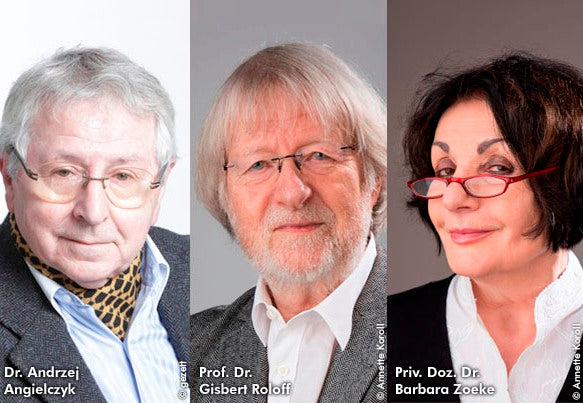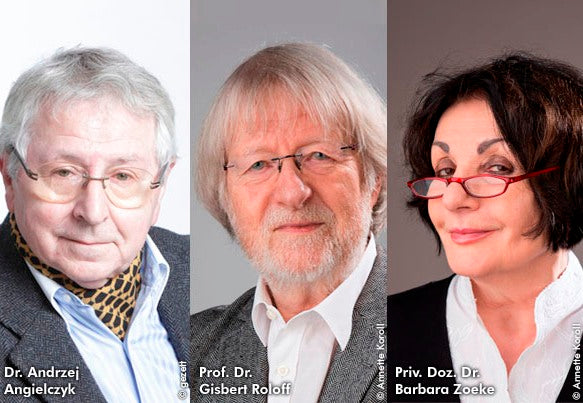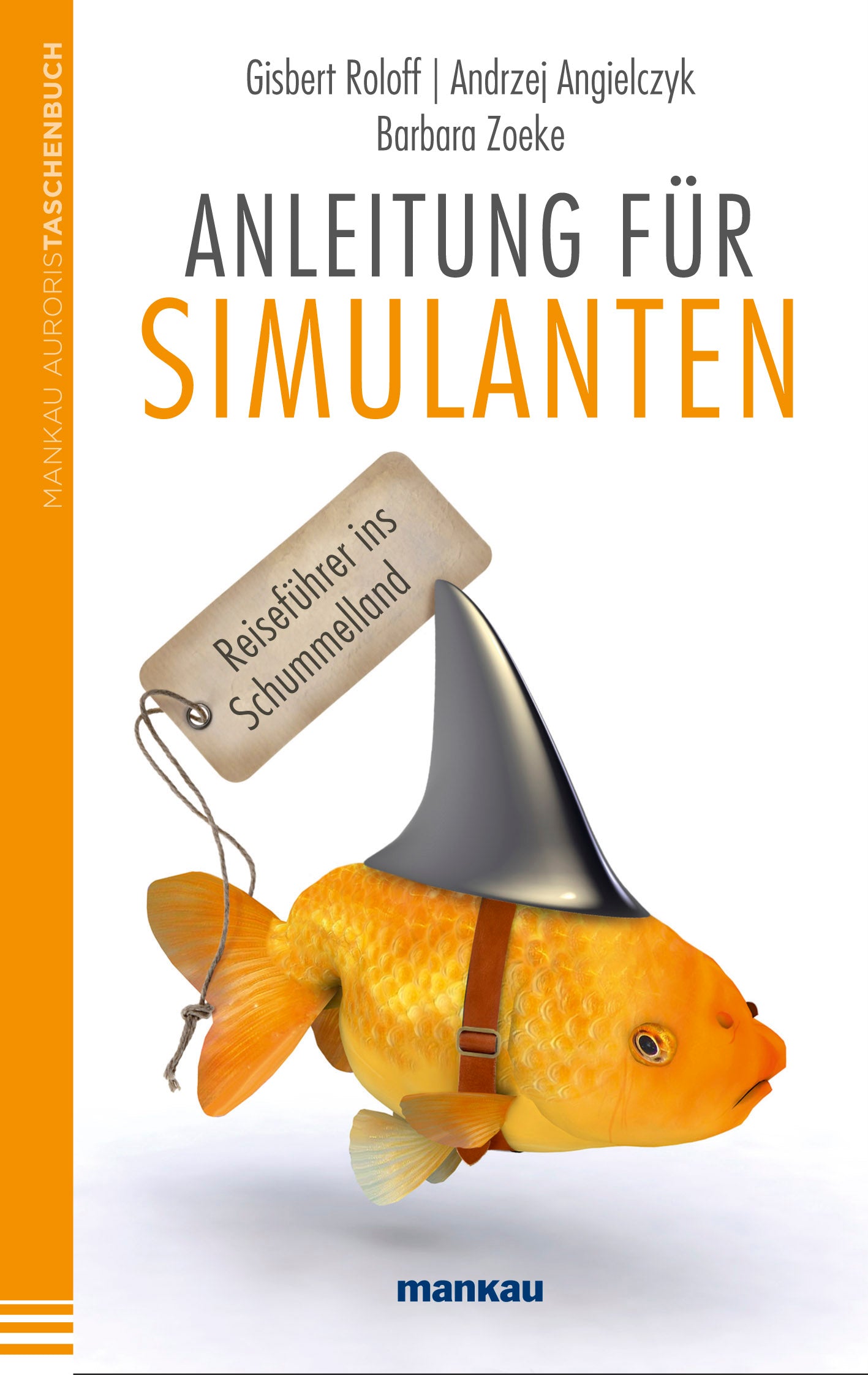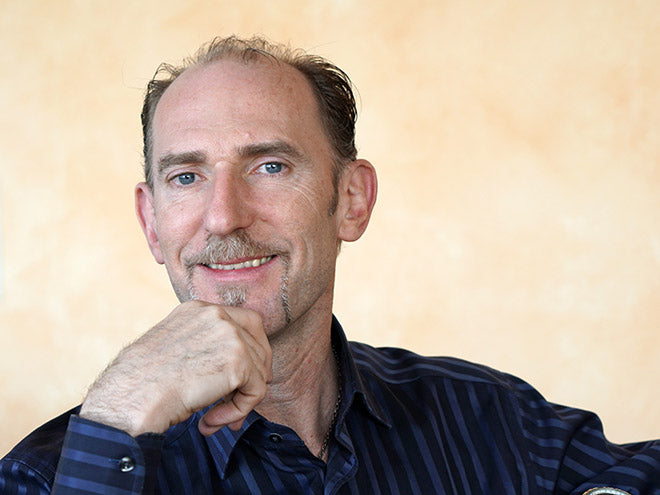
Instructions for malingerers: "We all live in cheat land!"
Instructions for malingerers: "We all live in cheat land!"
Interview with the psychologists Prof. Dr. Gisbert Roloff and Priv. Doz. Dr. Barbara Zoecke as well as the physician Dr. Andrzej Angielczyk
"People don't need to be taught to deceive; we all like to deceive - more or less consciously - and often. After all, there is a little deceiver inside each of us who wants to be a little better, more attractive and cleverer than everyone else. So our guide is both a mirror in which everyone can see themselves, and at the same time it can be seen as a guide. Those who use both aspects wisely will make life easier for themselves and others."
In their guidebook “Instructions for Malingerers – Travel Guide to the Land of Cheating”, the three authors humorously illuminate the culture of deception from different perspectives – and even offer interested readers some good advice for everyday ailments.
“A Guide to Unhappiness” is the title of a well-known book by psychologist Paul Watzlawick. Is your “Guide for Malingerers” not to be understood as an invitation either?
Roloff: Paul Watzlawick's breviary shows how we stand in our own way day after day. And precisely because this book disguises itself as a guide to "unhappiness", it teaches in a humorous way what each individual can do to become happier. Our guide has at least two functions: as a mirror in which everyone can see themselves, but also as a signpost. Anyone who uses both functions wisely will make life easier for themselves and others.
What prompted you to provide an “instruction manual” for behavior that has been morally condemned since the beginning of culture?
Zoeke: Instructions don't say "do this or do that", but rather "if you do it, do it right". Incidentally, people don't need to be instructed to deceive. They deceive for selfish reasons, but also for altruistic reasons. Or would you tell a seriously ill friend that he looks like death incarnate? Wouldn't you find a euphemistic formula to make life easier for yourself and him? In other words: we need commandments and prohibitions because we are so good at deceiving.
Evolutionary research says that only those who have learned to deceive and trick can survive and reproduce. What examples of these strategies can be found in our animal relatives?
Roloff: Yes, evolutionary research does indeed provide compelling evidence of simulation in animals. In the first part of our book you will find surprising and funny survival patterns. For example, the octopus, which can not only change its coloring to match the surface a thousand times a day in order to escape its predators. It can also change its shape, becoming a flounder that darts away like an arrow, a sea snake, or a snail. And field research has long since convincingly proven that chimpanzees perform masterpieces of deception in order to steal a female from the pasha of their group.
Especially in the glittering world of the media, the beautiful appearance often turns out to be nothing more than a backdrop. Are our stars and starlets just bad role models or even the tip of the iceberg?
Zoeke: The stars and starlets may be role models from time to time, but above all they are really the tip of the iceberg. Here the media acts like a magnifying glass: when the media is watching, everything becomes brighter and more colorful, as we mentioned in the first part of our book. We don't see any significant differences to "normal people". After all, there is a little fraud in each of us who wants to be a little more attractive and intelligent than everyone else.
In everyday life, it is above all the modern working world that seems to encourage deception and trickery. Can we see a change here compared to earlier eras?
Roloff: Perhaps the methods have just become more refined. After all, terms such as "Blue Monday" and "blue-making" have long been part of the German vocabulary. The British also have a particularly nice expression, namely "to take a sicky on Monday", to refer to a lazy Monday. And our Polish neighbors use the charming word bumelować. However, we would like to reject the restriction to the world of work. Our book contains numerous examples of deception and trickery in completely different areas. Just open the newspaper: taxes are evaded, insurance companies are cheated, bad securities are sold, fake doctorates are used, research results are embellished...
In medical practice, one often has to deal with malingerers. How does a doctor recognize the simulated pain? And what must the malingerer pay attention to in order to deceive credibly
Angielczyk: Malingerers like to exaggerate and dramatize; so anyone who wants to fake pain should find out where and why something can hurt. Because someone who constantly reacts with violent cries of pain will hardly be able to convince the specialist. This also applies to someone who completely "forgets" their fake pain during a conversation with the doctor. Every health problem follows its own clinical logic, which must be taken into account. In the second part of our book, we go into detail about possible pitfalls.
Despite all the irony, the tendency to (self-)deception often has very tangible causes, for example in traumatic life situations. What functions does deceiving oneself and others have here?
Zoeke: Traumatic life situations - such as torture, rape, civil wars - as described in the third part, can overwhelm a person's ability to cope. In this case, the strategies of deceiving oneself and others can be accompanied by denial of the traumatic event. What I keep quiet about did not happen - at least not for the others. Sometimes this is a way of avoiding the re-experiencing of the trauma.
Doctors, clinical psychologists and experts of all disciplines are committed to the well-being of people and the well-being of the community. And yet their judgment determines the future fate of the patient or delinquent. Is “nothing but the truth” always the right thing for professionals?
Roloff: We wouldn't be professionals if we agreed with that statement. Anyone who believes in one, the only truth is probably still in their infancy. Often in interpersonal relationships - and the client-professional relationship is one such - there will be many different shades of truth. And sometimes it will be wise not to close one's eyes - that would be unprofessional - but to turn a blind eye to at least one thing. In dubio pro reo - in case of doubt, for the accused, as the lawyers say. We deal with such questions in the fourth part of the guide.
Angielczyk: Another aspect complicates the matter. An expert is seen as an extension of the client from the outset. This role assignment can make it difficult to establish a proper working relationship. This means that an expert will have to check his "truth" again and again.
Book tip:
Gisbert Roloff / Andrzej Angielczyk / Barbara Zoeke: Instructions for malingerers. Travel guide to the land of cheating. Mankau Verlag 2014, paperback, 12 x 19 cm, 191 pages, €9.95 (D) / €10.30 (A), ISBN 978-3-86374-153-2.
Link recommendations:
More information about the guide "Instructions for Simulants"
To the reading sample in PDF format
More about the author Prof. Dr. Gisbert Roloff
More about the author Dr. Andrzej Angielczyk
More about the author Priv. Doz. Dr. Barbara Zoecke
To the Internet forum with the authors











